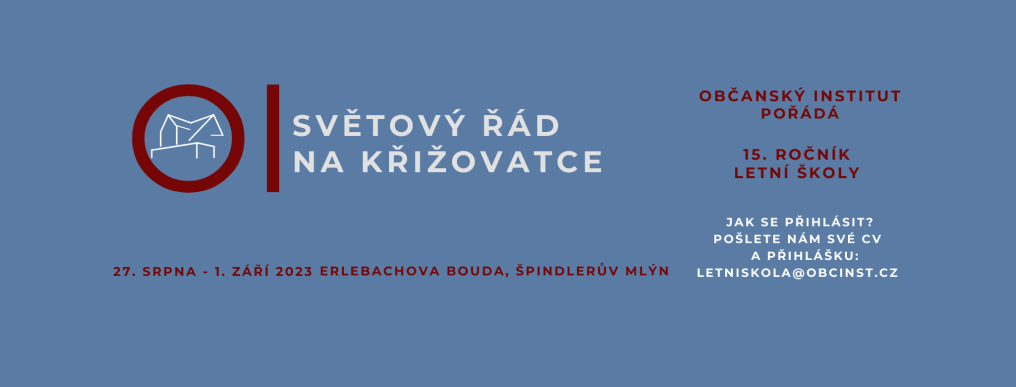Paleoconservatism and Universalism
by Dr. Roman Joch
In fact, yes, there were two Enlightenments: French, doctrinaire, utopian, leading to the 20 Century left-liberalism and communism; and an Anglo-Scottish (and American) enlightenment, claiming political freedom, but appreciating Christian heritage, morals and religion, as well as political prudence. Every human being has a moral right to freedom, but how to found, build and preserve a free polity, depends on prudence.
Now it is truth (almost tautological) that the Anglo-American enlightenment liberal tradition, its 1776 Declaration statement, and the liberal ideal of universal fairness did grow on Anglio-Saxon soil. In that sense they were products – historically and chronologically – of Anglo-Saxon culture; as well as Moslem religion had been a product of Arab soil (and Nazism of German soil; and Christianity of Jewish soil, etc.). But the real question, for me, is: are those above-mentioned creeds incommensurable? Has none of them universal validity in the sense of universal truth? And only two positions are possible:
A) No one proclaims universal truth. There is no such a thing as universal truth. Anglo-Saxon classical liberalism was good just for Anglo-Saxons and they should try to preserve it – as well as Arabs should try to preserve their Islam. Conservatism means simply to conserve what is at any given point in history, what has happened before by accident and history. If so, there is no substantial reason for conservatism. If Anglo-Saxon liberty is of no more inner worth than Islam, why not to accept Islam? Why resist Islamization of our nations? Islam could become our next heritage!
B) Some of them proclaim universal truths. So, the land of their historic origin is less important than the fact that they are true. If Christianity is right, then we should conserve Christianity not because it is our tradition and heritage, but because it is right. A European has a reason to be a Christian, but that reason is not that Europe had been Christian, once (it had been pagan once, too; and now is again, as well). On the other hand, if Islam is right, to become a Moslem is the right thing for us to do, regardless of the fact that we have no Moslem heritage. (In fact, we had no Christian heritage in Central Europe cca.700 AD). However, if Christianity is right, it is right for Arabs to abandon Islam and to become Christians.
Now, Nazism has never and nowhere been right. Is has been a good political creed neither for Germans nor for anybody else, ever. Nazism (like Communism) has always been universally both wrong and evil.
What about the Anglo-Saxon tradition of individual liberty? Is it universally right, or right just for Anglo-Saxon peoples? I am convinced it is universally right. Freedom of the individual is the proper goal of political society. In that sense, the classical liberal project of the 18th Century was right, pace Tom Fleming. However, having said that, there are many means how to achieve individual liberty. Anglo-Saxon ways – Constitutional Republic, Liberal Democracy, Parliamentary System – do not need to be universal. Monarchy could lead to greater individual liberty in certain nations. Some other arrangements could be more fit for even other nations.
But individual freedom as an ideal is the right political goal for all peoples in the World – and Anglo-Saxons were just the first to accept that goal, in the same sense that Christianity is the right religion for all people in the World, not just for Europeans and their descendants. Christianity is good for Arabs, as well as Indians, as well as Japanese, as well as Jews. It is just an accident of history – and coincidence – that Europe was the first Christian civilization. Even though the first Christians were dozens of Jews, it does not mean that Christianity is only for Jews. The first politically free people were Anglo-Saxons, but that does not mean political liberty is only for Anglo-Saxons.
Tom Fleming and the paleoconservatives could make a point, and a right one, that even a worthy, universal ideal cannot be achieved by the same, universal means, nor in the same degree. They may make a point that Anglo-Saxon culture and history and habits are more conducive to freedom than French, or Central-European or Russian, or Arab culture, history and habits. That is a valid point and I agree with it completely. I guess that Americans will always be more free (less government) than Central Europeans. However, it doesn’t mean freedom is not a universally right goal. I happen to believe that we, Central Europeans, will be more free, due to our heritage and culture, than Arabs will be, at least in the foreseeable future. I even think that certain traditions and/or religions are unfriendly to freedom (e.g. Islam, statism, paternalist expectations, etc.). But the proper goal for statesmanship in all nations is to establish as much freedom as possible in given conditions and inherited circumstances. I am not sure Tom Fleming would agree.
Of course, true ideals should be introduced with prudence. F.A Hayek and Edmund Burke, as well as Meyer, were so right in their rejection of false, utopian rationalist constructivism. But the rejection was of false universalistic means, not of right universalistic goals. Political ideals should be universalistic, but political means and ways should be particularistic – according to each nation’s traditions and habits.
Publikováno na stránkách internetového magazínu www.ConservativeBattleline.com dne 8.9.2004








